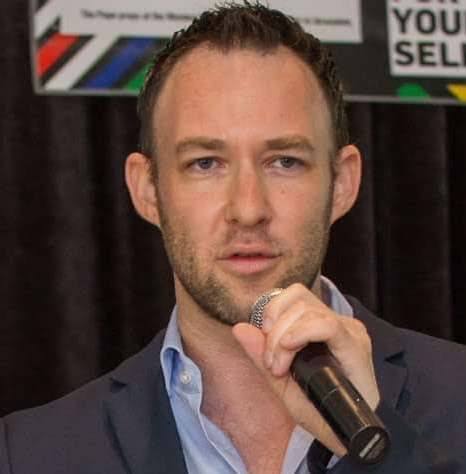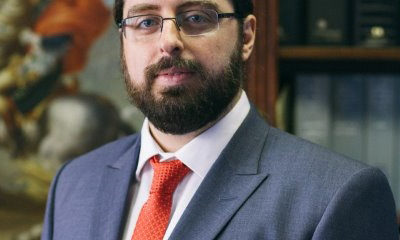
OpEds

South Africa at a moral crossroads
One year after the 7 October massacre, the most horrific attack on Jewish people since the Holocaust, South Africa stands on the precipice of moral failure. The leadership of the African National Congress (ANC) has transformed our once-proud beacon of hope and reconciliation into a political proxy against Israel, betraying our democratic values and undermining global peace and security.
Ordinary citizens and political parties in the new government of national unity must confront this moral abdication and steer South Africa back towards its principles of democracy, humanity, and equality.
The ANC government’s response to the 7 October atrocities goes beyond mere political misstep; it represents a shocking abdication of moral responsibility. From the outset, the ANC-led government brazenly aligned itself with the perpetrators rather than the victims. This moral bankruptcy has now reached new depths, with the ANC issuing a directive for “commemorative activities in solidarity with Palestine” on 7 October 2024, a callous erasure of Israeli suffering that lays bare the government’s skewed perspective.
President Cyril Ramaphosa and his leadership, brazenly donning keffiyehs, levelled scandalous charges of genocide against Israel while victims’ bodies still lay unburied. Former Minister of International Relations and Cooperation, Dr Naledi Pandor, took this unconscionable stance even further. She not only made a call of support and solidarity to Hamas leaders, but a mere two weeks after 7 October, visited Iran, the puppet master of regional terror and the architect of the seven-front war against Israel.
This unconscionable position is no momentary lapse, but a calculated strategy. South Africa has willingly positioned itself as another proxy of Iran, opening a new front in the war against Israel – the front of delegitimisation.
By leveraging its status as a democratic nation with the moral legacy of fighting apartheid, Pretoria has become the politically palatable mouthpiece for those who seek Israel’s destruction. The government’s decision to bring genocide charges against Israel in the International Court of Justice (ICJ) marks the nadir of this moral descent.
Since 7 October, the Department of International Relations and Cooperation (Dirco) has devolved into little more than a Hamas propaganda outlet. It eagerly spreads terrorist lies, falsely accuses Israel of Hamas’s crimes, denies Hamas’s atrocities despite mounting evidence, and even slanders Jewish leaders as fabricators of these horrors. This stance makes a mockery of South Africa’s purported commitment to human rights and international law.
The formation of a government of national unity has introduced a glimmer of hope, with several coalition parties supporting Israel. However, Ramaphosa, Dirco, and the international relations minister persist in their unwarranted attacks on Israel.
At the United Nations General Assembly on 24 September 2024, Ramaphosa devoted more than a quarter of his allotted time to criticising Israel indiscriminately, repeating the baseless “genocide” accusation, and lauding the ICJ case.
This week, on the anniversary of 7 October, Ronald Lamola, the minister of international relations and cooperation announced South Africa’s imminent filing of its memorial to the ICJ case. In light of these actions, it’s crucial that pro-Israel parties within the coalition assert their influence to reshape South Africa’s foreign policy.
Their goal should be to steer the country towards a policy of dehyphenation between Israel and the Palestinians. This approach would allow South Africa to cultivate relations with Israel independent of the Palestinian issue, enabling our country to benefit from Israeli technology and innovation in line with India and other countries who have taken this position.
Meanwhile, the ongoing hypocrisy of our government’s position is staggering. While unabashedly bashing Israel, it cannot bring itself to condemn Hezbollah’s relentless rocket assaults on Israeli civilians or Iran’s unprecedented launch of 200 ballistic missiles at Israel. The strongest condemnation it can muster is “concern” about “hostilities”, invariably followed by blaming Israel for the escalation.
This moral bankruptcy extends beyond rhetoric. The ANC-controlled City of Johannesburg’s proposal to rename Sandton Drive to Leila Khaled Drive – a transparent attempt to antagonise both the United States (US) and the Jewish community – exemplifies the petty vindictiveness that has replaced principled governance.
The contradictions in South Africa’s foreign policy are glaring. While aligning itself with the enemies of the West and undermining Israel at every turn, the government simultaneously lobbies the US to continue with the Africa Growth and Opportunity Act and maintain positive trade and diplomatic relations. This schizophrenic approach not only damages our international credibility, it jeopardises our economic interests.
Moreover, the government’s stance makes peace between Israel and the Palestinians less attainable. By failing to condemn terrorism and refusing to hold Hamas accountable for its actions, South Africa emboldens extremists and undermines moderate voices on both sides, prolonging the conflict and increasing suffering for all.
The tragedy of this situation is compounded by its disconnect from the sentiments of the average South African. Our on-the-ground experiences consistently indicate that most citizens don’t share the government’s obsessive hostility towards Israel. The recent national elections, in which the ANC suffered a resounding defeat despite making virulent anti-Israel sentiment a core part of its platform, confirmed this gulf between the government and the people.
The government’s actions over the past year haven’t just betrayed its Jewish citizens, they have also trampled upon the very democratic values that are the bedrock of our society. This past year has forced many to question their place in a country that seems increasingly hostile to their identity and beliefs.
Yet, in the face of this pressure and cynical emotional manipulation, the South African Jewish community has stood firm. Our support for the nation-state of the Jewish people in our historic homeland isn’t a matter of choice, it’s part of our sacred identity. We won’t be swayed by the moral confusion of our detractors, nor will we apologise for our steadfast Zionism.
As we commemorate the victims of 7 October and stand in solidarity with those still held captive, we must also recognise that South Africa stands at a crossroads. Will the ANC-controlled foreign relations department continue down this path of moral bankruptcy, aligning Pretoria with those who perpetrate and celebrate violence? Or will our country reclaim its position as a voice for justice, peace, and reconciliation?
The choice is clear. South Africa must step back from the brink, reassess its position, and return to the values that once made us a beacon of hope for the world. We must condemn terrorism unequivocally, support Israel’s right to self-defence, and support the goals and vision of the Abraham Accords in the Middle East. Only then can we begin to restore our moral standing and play a constructive role on the global stage. Our future as a respected member of the international community depends on it.
- Rowan Polovin is national chairperson of the South African Zionist Federation.










